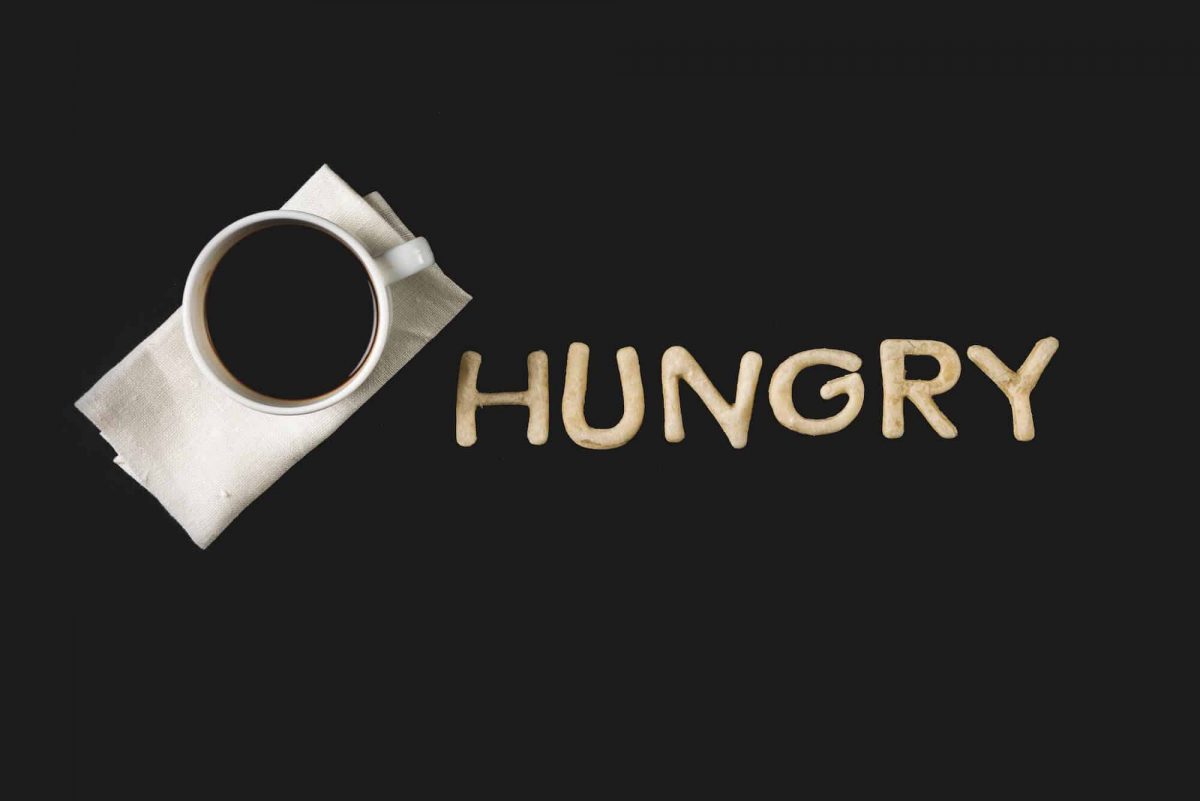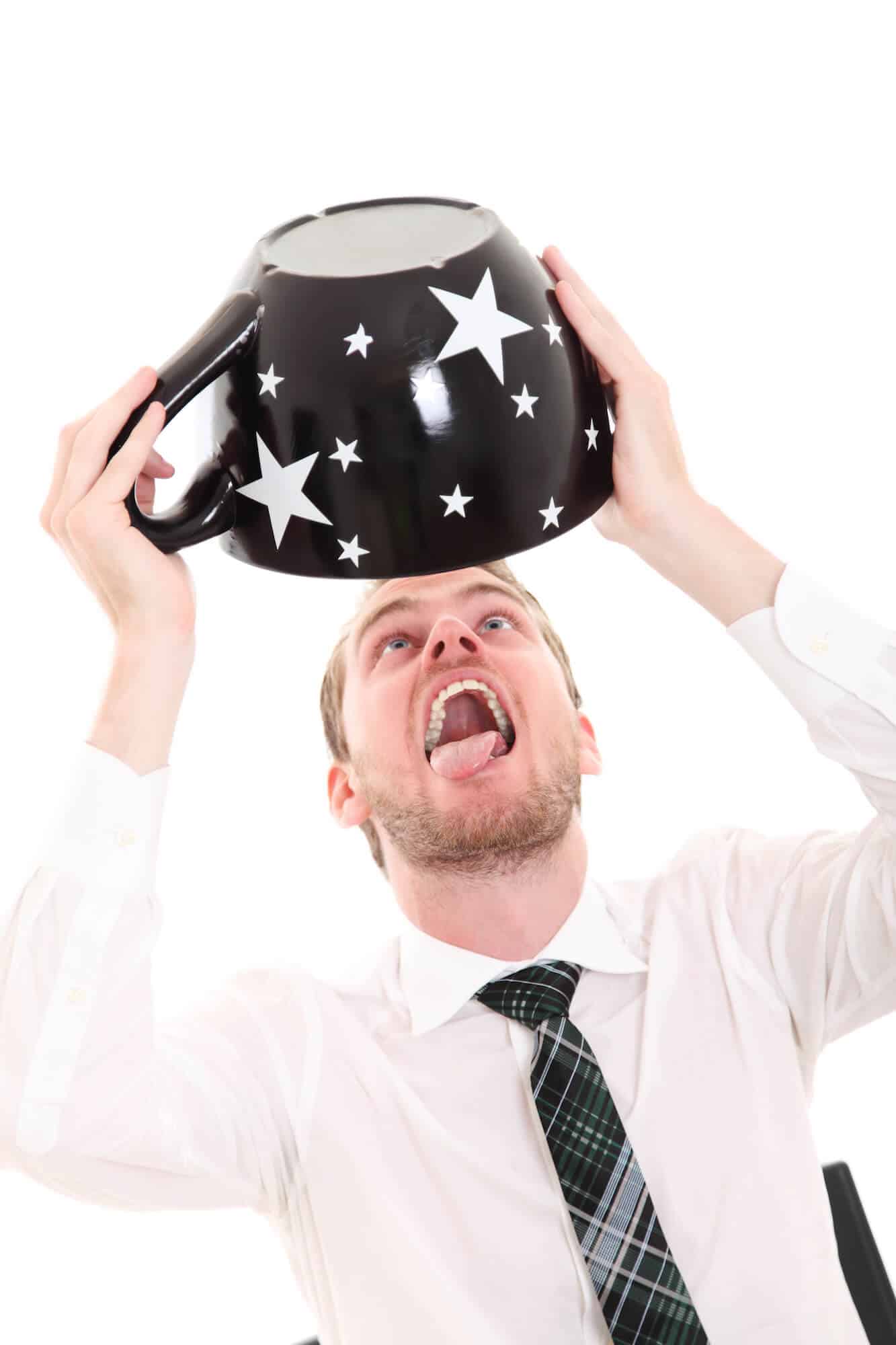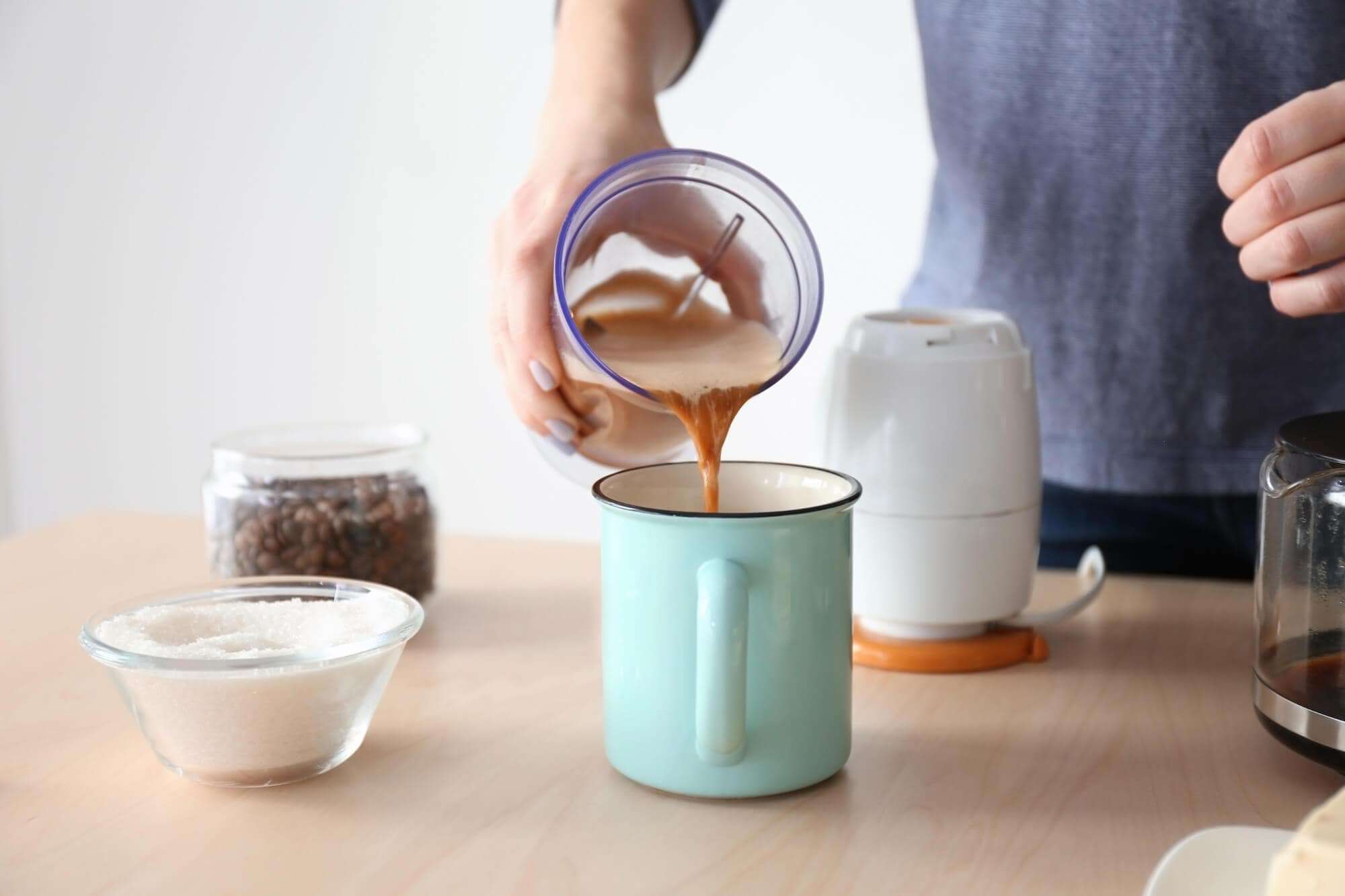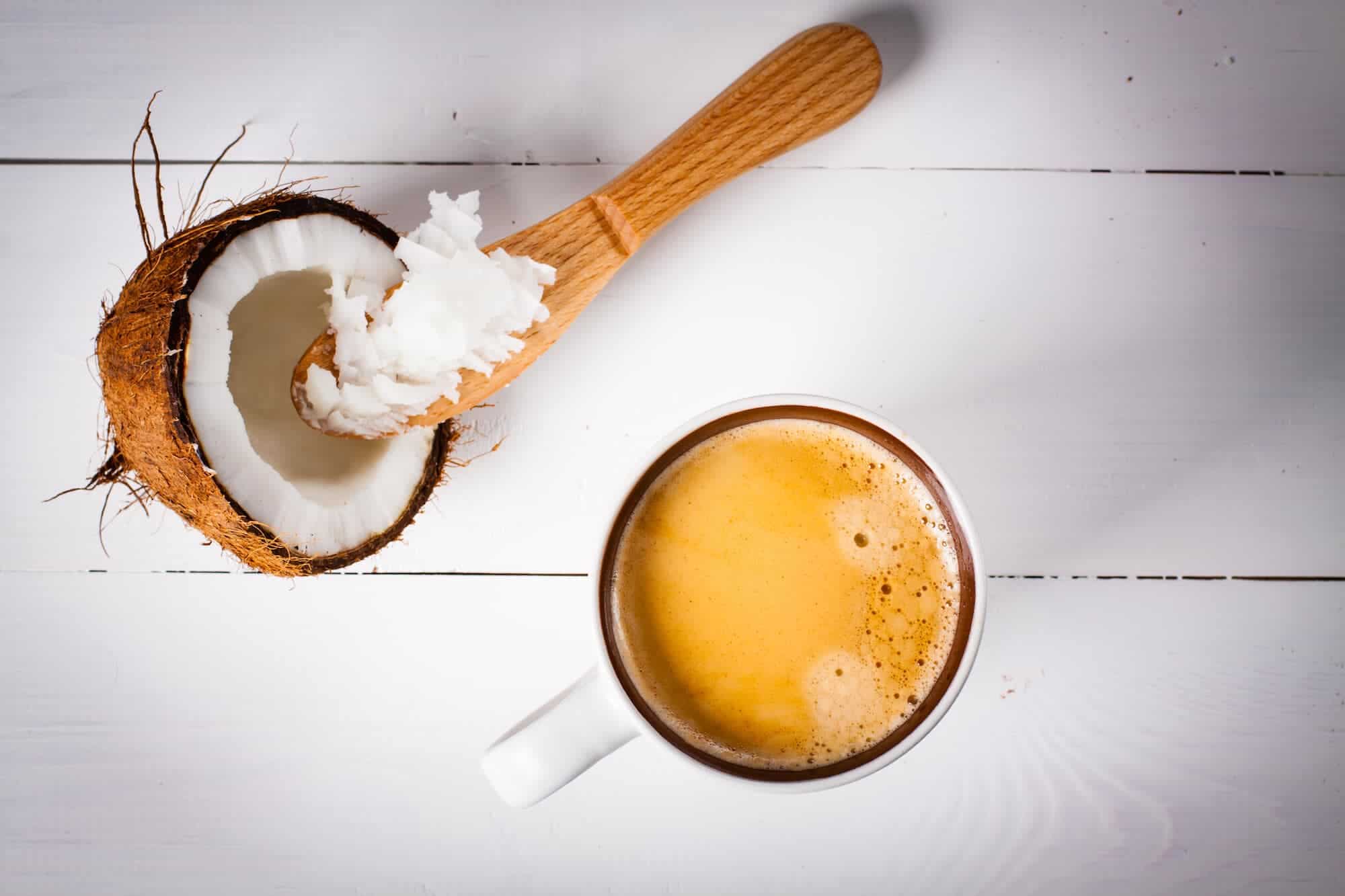Can I Drink Coffee Without Breaking My Fast?

Fasting comes up a lot in modern culture whether it be due to religious or health reasons.
People know that fasting means not eating as much as usual and that there are both strict fasts and more lenient fasts. What does this mean for coffee? Does fasting mean that you have to abstain from coffee altogether?
Are there ways to fast correctly as well as get your regular coffee fix? The answer is varied. Depending on which fasting regime you follow the answer could be yes, no or maybe.
What is Fasting?
Fasting is willfully reducing the intake of food you consume in a day or completely eliminating it. There are several types of fasts. The least extreme is an intermittent fast which refers to a fasting cycle. In this a person would eat for a specified period and then fast for a certain amount of time. A diagnostic fast is not eating any food to prepare for medical testing such as bloodwork.
More extreme types of fasting include dry fast in which a person does not consume any food or liquid for a certain period—usually 24 hours! A water fast, just like the name says is a fast in which a person only drinks water.
There are also religious fasts which are used to get closer to God or to observe a special holiday of profound religious significance. These fasts can range from rigorous to lenient dependent upon the religion.
There are many health benefits to fasting. Among the most prominent are detoxification, resetting the digestive system, reducing blood sugar, weight loss and boosting immunity.
Can You Drink Coffee Without Breaking Fast?
When hearing the word fast or even thinking about the idea of fasting, coffee may seem like a forbidden drink. Fasting seems to get rid of everything except the basics needed for survival. I know, it can be hard for us coffee lovers to not see coffee as an essential. However, the short answer is: it depends.
A strict fast will forbid coffee altogether and tend to allow only water or sometimes require abstaining from even that! Some fasts will consider black coffee as a beverage similar to water because it does not contain any calories, while in other fasts black coffee is forbidden due to its caffeine content.
When deciding whether or not coffee will break your fast, it is important to consider a couple of things:
Unfortunately, this makes the question of does drinking coffee break your fast a bit complicated, and the answers are varied.
Coffee and Religious Fasting
The most common type of fasting is for religious purposes; however, each religion has its own set of rules. Of the three Abrahamic faiths Catholicism or Christianity is the most coffee friendly. While in the past it was common to abstain from meat on Fridays as well as during Lent (the forty days leading up to the Easter holiday), most believers only observe this fast during Lent.
Judaism, for the most part, allows coffee. The most important part of this religion is to follow the kosher diet, and coffee alone is considered kosher. There are only two exceptions. Due to the decaffeination process, decaf coffee is not regarded as kosher during Passover.
The Jewish religion has two holidays, Yom Kipper and Tisha B’Av, in which “Tzom Kal” or “having an easy fast” must be observed. This fast lasts 25 hours and does not allow the consumption of any food or beverages. It is strongly advised that before these two fasts that the observer cut back on coffee or any caffeinated drinks to make the fast more comfortable and not suffer from caffeine withdrawal headaches
Islam is much stricter. During Ramadan the practitioner is required to fast from dawn until dusk for 29-30 days. This fast excludes the intake of all food or beverages—even water. The rules are black and white; therefore, coffee is by no means allowed.
Coffee and Fasting for Bloodwork
Before having bloodwork done, doctors will advise their patients to fast for about 8-12 hours. This fast requires staying away from food and beverages except for water. While some people may consider plain black coffee without any milk or sweetener nothing more than water, this is not the case.
The caffeine in coffee is absorbed by the body and may throw off some of the body’s fluid and electrolyte balance, thus skewing the results. Also, coffee consumption can affect the liver causing it to release hormones into the bloodstream. In fact, coffee can stay in your system for up to six hours!
Before doing any blood testing, it is best to just drink water to put the body in its natural state. However, as with any type of medical testing, it is best to follow your doctor’s instructions.
Effects of Coffee and Caffeine on Your Fast
Once determining whether or not your fast allows coffee or not, there is one adverse effect to worry about if your fast does allow coffee. Since you are not eating so much and drinking more water and coffee, you have a risk of suffering from frequent diarrhea. To avoid this discomfort drink coffee is moderation.
There is also a positive effect. The caffeine effects seem to be more pronounced. This is due to the fact the stomach is empty. As the caffeine enters your system you will subjectively feel that you are more alert and more energized.
Can You Drink Coffee During an Intermittent Fast?
An intermittent fast is fasting in intervals. Generally, a person will go about 16 hours without eating. This is not as hard as it may seem because the average person sleeps eight hours a night, so it is as simple as not eating the first four hours before going to bed and the first four hours after waking up! This fast promotes losing fat and building muscles while promoting health!
During this type of fast black coffee is allowed and is recommended! It contains zero calories, so there is no need to worry about breaking the fast. It is also an appetite suppressor so not only can you drink your favorite beverage, it will help you maintain your fast!
There are other types of coffee beverages that will not break an intermittent fast if the primary goal is to achieve weight loss or gain a health benefit. These types of fast tend to be more lenient. The main goal is to keep insulin levels low as to promote the body to get energy from its stored fat instead of from food.
Coffee with Cream while Fasting
During a “true fast” cream in coffee is forbidden, but during an intermittent fast a splash of cream will not break your fast. Cream does not stimulate the release of insulin because it is low in calories and is mostly fat.
Coffee with cream contains about 20 calories. In general drinking anything with less than 50 calories will surely keep your body within the fasted state during an intermittent fast. Even diet doctor, Dr. Jason Fung confirms that drinking coffee with cream should not hinder you from getting the results you desire during an intermittent fast.
Bulletproof Coffee
First of all, bulletproof coffee is a high-performance drink used by CEOs to athletes for energy. In short, it is French pressed Bulletproof coffee beans with 1-2 teaspoon of Brain Octane Oil, and 1-2 tablespoons of grass-fed butter mixed in a blender for 20-30 seconds until reaching a foamy latte like consistency.
Opinion on whether Bulletproof coffee breaks an intermittent fast is varied. Some say it is ok while others say it is not. Proponents who are for it argue that this does not raise insulin levels so drinking it during a fast is up to the person. They continue that this will make you fill fuller for longer thus leading you to eat less in the long run.
However, Bulletproof coffee can contain up to 450 calories which can throw off the rest of your eating schedule for the day. Also, the point of this fast is to lose fat not to add more fat. Lastly, coffee with butter can boost hyperlipidemia, commonly known as high cholesterol.
Coffee with Coconut Oil
Coffee with coconut oil is similar to Bulletproof coffee. It is high in calories with about 120 calories to be exact which will lower the amount of food you can consume later in the day. Coconut oil in coffee can also boost high cholesterol.
However, there is a case for coconut oil is an intermittent fast! The fat in coconut oil, or the medium-chain triglycerides (MCT), cause beneficial metabolic changes which help to speed up fat loss. MCT found in coconut oil can increase energy expenditure, speed up metabolism and even suppress your appetite! Despite the high caloric value, the benefits seem to outweigh the cons.
Does Coffee Make Intermittent Fasting Easier?
YES! Coffee does make fasting easier, especially if you are a regular coffee drinker. As with the example of coffee drink within an intermittent fast, they not only let you enjoy your daily coffee ritual, but they also help to suppress your appetite making it mentally easier to maintain your fast.
That is not all! Coffee is known to give your energy, but on an empty stomach the body is not busy digesting other food so the caffeine seems to have a stronger effect! This can make you feel more energized and can make you more productive during the day!
Takeaway
There are many different types of fasts. Religious fasts can be rather strict and outright forbid coffee, while intermittent fasting is more forgiving and allows coffee. A strict fast does not allow for coffee or may allow only black coffee without sweetener or milk.
Like with anything, you have to know the reasons behind why you are fasting and decide whether you can continue with your daily coffee habits or not. Remember, if you plan to do a longer fast it would be wise to consult your general health practitioner to ensure you are going about it safely.


